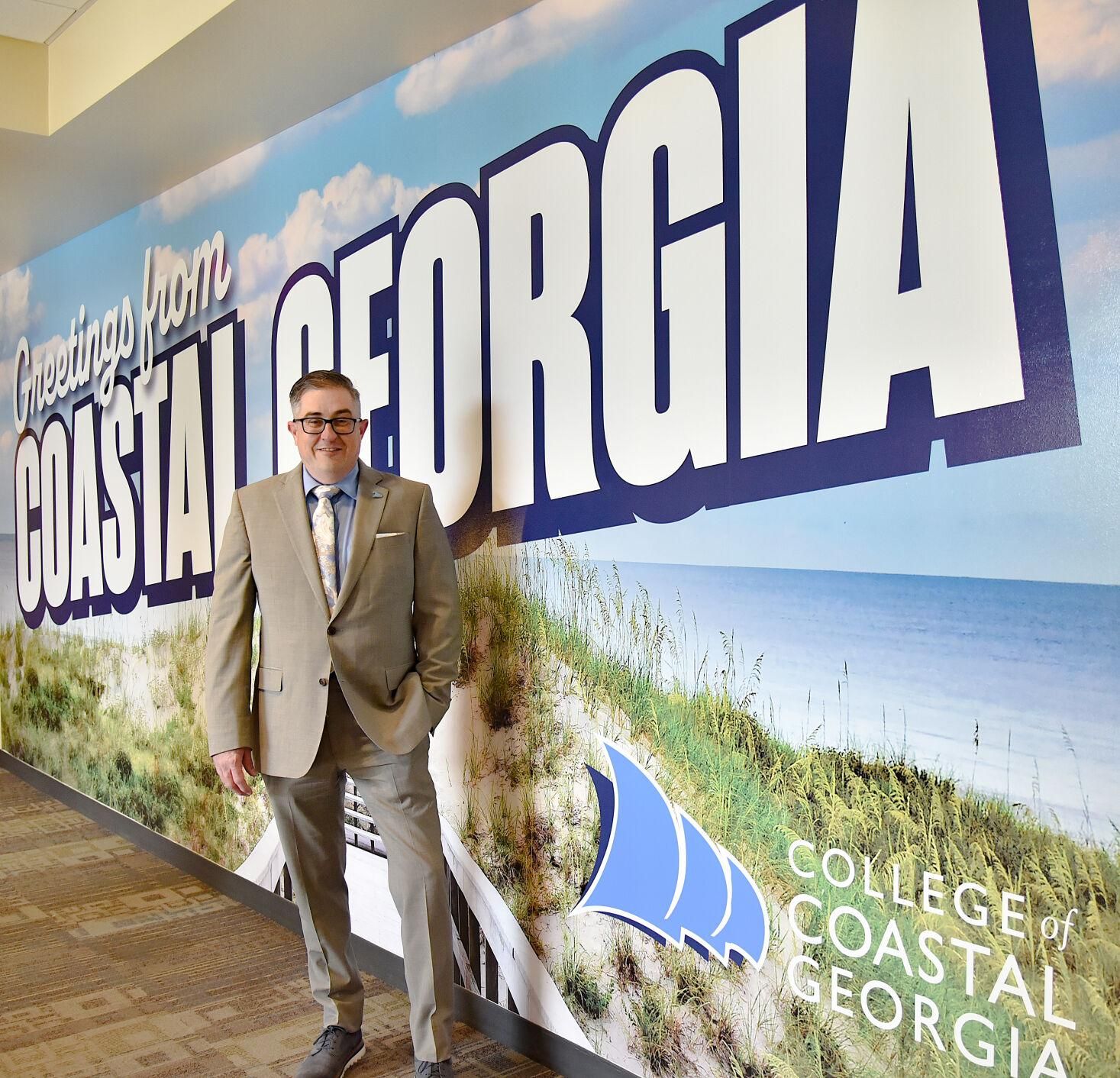
College Leader Melds Academia, Creativity
College of Coastal Georgia is under new leadership with interim president Johnny L. Evans Jr., Ph.D, at the helm. Formerly Coastal’s Provost and Vice President for Academic Affairs, he now works to achieve the academic goals of the school from a wider and more creative perspective. Before joining the College in 2019, Dr. Evans held leadership positions as the Dean of Math and Science and, subsequently, Dean of Arts and Sciences at Abraham Baldwin Agricultural College. He dedicated the first 13 years of his academic career at Lee University in Tennessee as a professor of chemistry and physics.
“While my role as Vice President for academic affairs focused specifically on advancing academic programs, serving as interim president has broadened my scope, allowing me to influence how these programs intersect with strategic goals for the college as a whole,” he said, adding that in his new position, he is able to integrate the academic priorities of the school with broader objectives, including resource allocation, student services, and community engagements. This ensures that the academic offerings at the College not only meet high standards, but also align closely with student needs and community opportunities. “This broader perspective enhances our efforts to create transformative educational experiences that empower students for success in both local and global contexts.”
Evans also said that several key initiatives have been introduced that directly support enrollment growth, especially in program offerings like nursing, hospitality, and business, which align with workforce demand and attract a diverse range of students. According to Evans, the partnerships the College of Coastal Georgia has with local industries offer students hands-on learning experiences that bridge academics with real-world solutions. That makes Coastal’s programs highly relevant and attractive, he said.
“We enhanced student support services, including advising, tutoring, mental health counseling, and career counseling, to create a supportive environment that enables students to thrive from enrollment to graduation,” said Evans.
Making positive connections between students and the local workforce, as well as in the community, is a priority of Evans’. As an example, he said the school works closely with local businesses to shape its curriculum in areas like health sciences, hospitality, environmental science, and education, which means students gain skills that are immediately applicable in the workforce.
“Internship opportunities and service-learning projects are embedded into our programs, allowing students to engage directly with the community while building their resumes,” he said. “These experiences not only benefit local organizations but also help students develop meaningful professional networks and a strong sense of civic responsibility.”
With the academic expansion and enrollment growth, enhancements to campus infrastructure and facilities are also taking place. That includes the new Center for the Arts, which is currently under construction and will provide state-of-the-art performance and conference spaces to enrich both student life and community engagement. Andrews Hall, one of the original buildings on campus, is under renovation to preserve its historic significance while updating it to meet modern academic standards. Andrews, Evans said, will become a one-stop resource center for students.
A $16 million expansion to Nunnally Hall is being finalized, with construction set to begin in 2025. This expansion will add advanced learning spaces tailored to the expanding nursing and health sciences programs.
“We’re also putting the finishing touches on our new softball field, enhancing our athletic facilities for students and fans alike,” Evans said. “Finally, the first phase of a campus ‘loop road’ is underway, which will connect the north and south ends of campus, improving access and creating a more cohesive campus experience for all.”
Evans is also an accomplished artist and metal sculptor who works in steel, brass, and copper. His work as an artist goes hand-in-hand with developing transformative educational opportunities.
“As a metal sculptor, I understand that transformation is a process that requires vision, patience, and skill — qualities that also apply to education,” he said. “In both art and academia, transformation involves guiding raw potential into something impactful and enduring. Just as a sculptor shapes metal into form, our role in education is to help shape students’ raw abilities into refined skills and knowledge that serve them throughout their lives.”
The commitment to transformation is at the heart of the mission of the College of Coastal Georgia as it strives to provide students with educational experiences that will fundamentally shape who they become and what they contribute to the world.